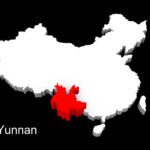The Center for the Scientific Study of Families reports are designed to provide relevant information about the conditional state of families in a specified context. The report provides information such as population, culture, family structure, and family life.
Family reports are an important tool for improving the lives of families. By providing information about the family’s conditional state and context, family reports can help improve communication between families and service providers and lead to better outcomes for families and children.
Overview
Helmand province is situated in the southwestern part of Afghanistan, sharing borders with other provinces such as Kandahar, Nimruz, and Uruzgan. The province is characterized by diverse landscapes, including fertile river valleys, deserts, and mountains. The Helmand River, the largest river in Afghanistan, flows through the province, providing vital water resources for agriculture and irrigation. Lashkar Gah, the provincial capital, is the largest city and serves as the administrative center of Helmand. Other notable urban centers include Gereshk, Sangin, and Musa Qala. The estimated population of Helmand province in Afghanistan was around 1.4 to 1.5 million people.
Agriculture is the backbone of Helmand’s economy, and the province is known for its production of opium poppy and wheat. The fertile river valleys along the Helmand River support extensive cultivation, making the province one of the leading opium-producing regions in Afghanistan.
Ethnic and Cultural Diversity
Helmand is home to a diverse population representing various ethnic groups. The major ethnic communities in the province include Pashtuns, Balochs, and some Tajiks and Hazaras. Pashtuns are the predominant ethnic group in Helmand. A 2017 report from the Naval Postgraduate School lists the following tribal groups in Helmand: Barakzai (32%), Noorzai (16%), Alokzai (9%), and Eshaqzai (5.2%). The same source reports that of the approximately 1.4 million people in the province (at that time), Pashtuns lived predominantly in the northern portions of the province, with the Baluch minority residing in the south of Helmand.
Marriage & Divorce Statistics
Our research did not reveal specific data for marriages in Helmand. However, we were able to identify several writings about marriage in the province. A 2006 report noted that forced marriage was an issue in the province. Specifically, the UN report states that the Afghanistan Independent Human Rights Commission registered more than 144 forced marriages as a way to pay dowry. Similar to marriage statistics for the province, our research did not unearth any reputable data on divorce statistics for Helmand. A 2021 Human Rights Report did note that women do not have the legal standing to unilaterally divorce their husbands but must first gain their consent to the divorce.
Family Life in Helmand
Research on family life in Helmand revealed the variety of challenges facing families there. A foreign policy report noted how violence and poverty have left nearly a quarter of its children malnourished. A recent 2023 UN report shared that nearly 400 families received direct aid due to the effects of the conflict in the Washir district of the province. As displaced families begin returning to their homeland, the hope is that future research on Helmand can provide more insights into family life in Helmand.
Conclusion
Family life in Helmand Province is challenging, but families have a remarkable capacity to show resilience. Given that even in circumstances of ongoing conflict and poverty, families will continue to be a critical institution in the development of Afghanistan. Future CSSF reports on the province will benefit from increased data about families in the province.





